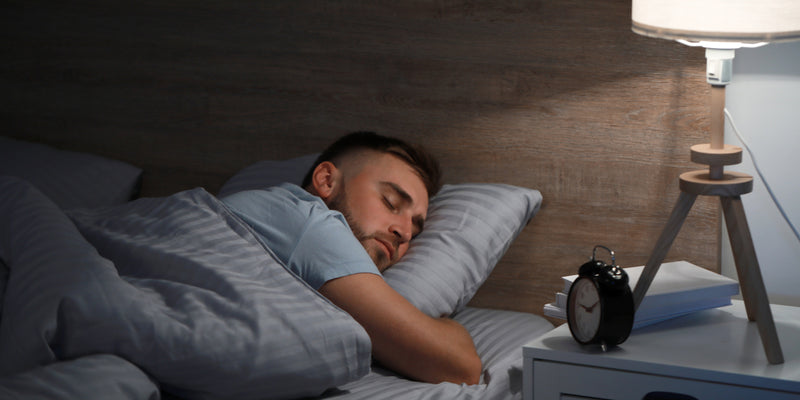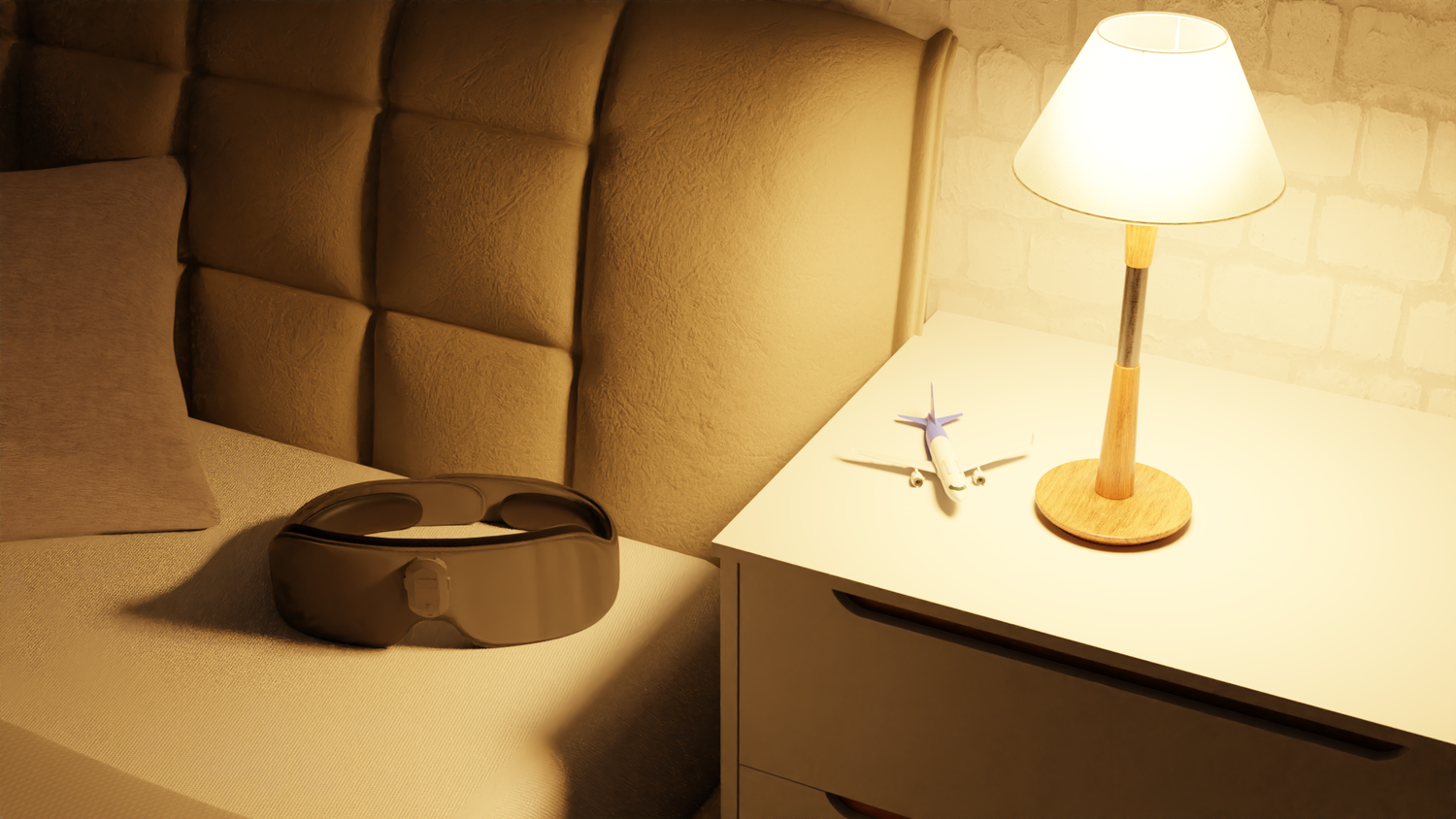Are you tired of jet lag wreaking havoc on your travel adventures? Fear not, as here are five proven techniques that will help you bid farewell to it and embrace a restful travel experience like never before.
Whether you're a globetrotting business professional or an avid adventurer, jet lag can disrupt your internal clock, leaving you feeling groggy, fatigued, and out of sync with your destination's time zone. However, with the right strategies and a little preparation, you can reclaim control over your sleep patterns and effortlessly adjust to new time zones.
So, if you're ready to bid adieu to the clutches of jet lag and unlock a restful travel experience, let's embark on this journey together. By incorporating these proven techniques into your travel routine, you'll be able to maximise your enjoyment, optimise your productivity, and make the most of every moment in your new destination like never before!
What Is Jet Lag?

Jet lag is a condition that affects individuals who travel across multiple time zones, disrupting their usual sleep-wake cycle and causing various physical and mental symptoms. It occurs when the body's internal clock, also known as the circadian rhythm, is out of sync with the new time zone. Jet lag commonly affects travellers who cross three or more time zones rapidly, moving either eastward or westward. It typically takes a few days for the body to adjust to the new time zone and until then, individuals may experience fatigue, difficulty sleeping, irritability, poor concentration, and digestive disturbances. Jet lag can significantly impact travel experiences and productivity, but fortunately, there are various strategies and remedies available to help minimise its effects. By understanding what jet lag is and adopting appropriate measures, individuals can ensure a smoother transition during international travel and quickly adapt to the new time zone.
What Causes Jet Lag?
Jet lag is a common condition that affects individuals who travel across multiple time zones, resulting in a range of physical and mental symptoms. Several factors contribute to the occurrence of jet lag.
Firstly, disruptions in the body's circadian rhythm, also known as our internal body clock, play a significant role in jet lag. Our circadian rhythm regulates various bodily functions, including sleep-wake cycles, hormone production, and body temperature. When we travel rapidly across time zones, our circadian rhythm becomes desynchronized as it takes time for our body to adjust to the new time zone.
Secondly, changes in time zones are a major contributing factor to jet lag. When we suddenly shift to a different time zone, our biological clock struggles to adapt to the new daylight and darkness patterns. This adjustment process typically takes a few days, during which individuals may experience fatigue, insomnia, or mood changes.
Lastly, the effects of air travel and cabin conditions can exacerbate jet lag. The low humidity and pressurised air in airplane cabins can lead to dehydration, which intensifies the feeling of fatigue and makes it harder for the body to adjust to the new time zone.
How Does Jet Lag Affect Your Internal Clock?

Jet lag is a widespread phenomenon that affects individuals travelling across different time zones. It manifests when our internal biological clock, known as the circadian rhythm, becomes disrupted due to rapid travel. Such disruption can have various effects on our physical and mental well-being, as well as our overall performance. Understanding how jet lag affects our internal clock is crucial in order to minimise its impact and facilitate a smoother adjustment to new time zones. In the following sections, we will explore the mechanisms behind jet lag and its consequences, providing valuable insights into this common traveller's dilemma.
What Are the Effects of Jet Lag on Sleep Quality?
The well-documented effects of jet lag on sleep quality can significantly impact one's ability to obtain restful sleep. When travelling across time zones, the body's internal clock, or circadian rhythm, becomes disrupted, leading to difficulties in falling asleep, maintaining sleep, and waking up at the desired times.
Jet lag can also result in the disruption of natural sleep stages. Normally, during a typical sleep cycle, individuals progress through different stages of sleep, including light sleep, deep sleep, and rapid eye movement (REM) sleep. However, with jet lag, these stages may become fragmented or unbalanced, leading to restless and interrupted sleep patterns.
Another crucial aspect affected by jet lag is melatonin production. Melatonin is a hormone produced by the brain in response to darkness, signaling the body that it is time to sleep. However, when traveling to different time zones, the body's melatonin production can become misaligned, making it challenging to initiate sleep or synchronize with the local time.
The symptoms of jet lag can further compromise sleep quality. Individuals can experience difficulties with concentration, memory, and coordination due to the disruption of their circadian rhythm. These symptoms can impair their ability to achieve restorative sleep, resulting in decreased performance and productivity.
Addressing jet lag is essential to maintain peak mental performance when traveling across time zones. Strategies such as gradually adjusting sleep schedules before travel, exposure to natural daylight, and using melatonin supplements can aid in minimizing the effects of jet lag on sleep quality.
In conclusion, jet lag negatively affects sleep quality through disrupted sleep stages, fragmented sleep patterns, and interference with melatonin production. Recognising the symptoms of jet lag and taking appropriate measures to mitigate its effects are key factors in ensuring optimal sleep and mental performance when travelling across time zones.
What Is the Impact of Jet Lag on Circadian Rhythm?
One of the key effects of jet lag on the circadian rhythm is the disruption of concentration. As the body struggles to adjust to the new time zone, individuals often experience fatigue, drowsiness, and difficulty maintaining focus. This can hinder their ability to concentrate on tasks that require sustained attention, such as studying or working.
Memory is also affected by jet lag. The circadian rhythm plays a crucial role in the consolidation of memories, as it regulates the brain's ability to store and retrieve information. When jet lag disrupts this internal system, individuals may experience difficulty in forming new memories or recalling previously learned information.
Coordination is another aspect of cognitive function that is adversely affected by jet lag. The circadian rhythm has been found to influence motor skills and coordination, with disruptions to this natural cycle leading to decreased hand-eye coordination and impaired physical performance.
In conclusion, jet lag can significantly impact the circadian rhythm, resulting in disruptions to concentration, memory, and coordination. These effects can interfere with daily functioning, making it important for travellers to take measures to mitigate the impact of jet lag, such as adjusting sleep schedules and practising good sleep hygiene.
5 Techniques for a Restful Travel Experience

- Create a Comfortable Environment: To have a restful travel experience, it's essential to create a comfortable environment. Bring a neck pillow, fluffy blanket, and an eye mask to block out light. These items can significantly improve sleep on planes, providing the necessary support and reducing distractions.
- Practice Breathing Techniques: Deep breathing exercises can help reduce stress and anxiety while traveling. Inhaling slowly through the nose, holding the breath for a few seconds, and exhaling through the mouth can calm the nervous system and promote relaxation. These techniques can enhance sleep quality on planes and reduce overall travel-related stress.
- Use Noise-Canceling Headphones: Noise-canceling headphones are a traveler's best companion for achieving a restful travel experience. They block out ambient noise, including crying babies or loud conversations, enabling passengers to relax and sleep better. By reducing external disturbances, noise-canceling headphones contribute to stress reduction and help alleviate anxiety on long flights.
- Set a Sleep Schedule: Establishing a sleep schedule can regulate the body's internal clock and prepare it for sleep. Plan to sleep during the typical sleep hours for your destination. This practice will help combat jet lag and ensure a more restful experience. Maintaining a consistent sleep routine can also reduce stress and anxiety associated with travel.
- Engage in Relaxation Techniques: Utilize relaxation techniques, such as meditation or listening to soothing music, to reduce stress and anxiety levels while traveling. These techniques can enhance sleep on planes and create a calming atmosphere during the journey. By taking a few moments to focus on self-care and relaxation, travelers can achieve a more restful experience.
By following these techniques, a restful travel experience can be achieved by improving sleep on planes, reducing stress, and minimizing anxiety. Creating a comfortable environment, practicing breathing techniques, using noise-canceling headphones, setting a sleep schedule, and engaging in relaxation techniques are all essential tools in promoting restfulness during travel. By incorporating these strategies into one's travel routine, travelers can enjoy a more peaceful and rejuvenating journey.
Takeaway
Jet lag is a common challenge that can disrupt your travel adventures and leave you feeling fatigued and out of sync with your destination's time zone. However, by implementing the five proven techniques outlined in this blog post, you can bid farewell to jet lag and embrace a restful travel experience like never before.
Creating a comfortable environment with items such as a neck pillow, blanket, and eye mask can greatly enhance your sleep on planes and reduce distractions. Practicing deep breathing exercises can help reduce stress and promote relaxation during your journey. Noise-canceling headphones are invaluable in blocking out ambient noise and creating a serene atmosphere for better sleep. Setting a sleep schedule aligned with your destination's time zone and engaging in relaxation techniques like meditation or listening to soothing music can further support your efforts to combat jet lag.
By incorporating these techniques into your travel routine, you'll be able to maximize your enjoyment, optimize your productivity, and make the most of every moment in your new destination. Say goodbye to jet lag and unlock a restful travel experience that allows you to fully immerse yourself in the wonders of the world.
Renpho Health Tips
-

The Connection Between Massage Guns and Better Sleep
May 23, 2023
Read more >
-

5 Self-Care Practices for a Healthier Mind
May 10, 2023
Read more >
-

Digital Detox Tips for Better Mental Health
May 3, 2023
Read more >
-

Stress Reduction Tips for Busy Professionals
April 19, 2023
Read more >
-

5 Signs You Need to Take a Break to Avoid Burnout
April 26, 2023
Read more >
